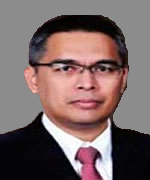Plenary Speakers
 |
Universität der Bundeswehr München Data-driven Decision Support and Sector-based Optimization with IDEA4C IDEA4C - Model Diagnosis, Socio-Economic Impacts and Future Operations using special Integrated Assessment Scenarios to optimize a Systemic Risk Analysis Abstract The current situation in the context of COVID-19 faced both the decision-makers in politics in particular as well as the players in the logistics industry in generally a multitude of complex challenges. The supply chains considered currently need special attention to be optimized on complex disruptions that affect the general security of supply. As part of the project »COVID-19 - Future Operations« an interdisciplinary consortium develops a trend-setting interactive visualization tool to support decision makers politics, to adapt and to explore different strategies. This talk gives an overview on that project. Furthermore it presents the special sector-based approach IDEA4C: I - Identification of critical regions, sectors and coupling principles Cost-Benefit Analysis for critical sectors.D - Data-driven constraint optimization Coupled Sector-based ModelsE - Exploratory Strategies/ Recognition of critical pathways and sectors Characterization of Pathways A - Adaptation and Quantifying Analysis |
 |
Gachon University, Music-Inspired Intelligent Harmony Search Algorithm and its Applications in Malaysia Abstract Harmony search is a music-inspired intelligent algorithm for various optimization and data-driven problems. This talk reviews various applications of the harmony search algorithm, especially performed in Malaysia. The applications include power system layout, structure design, heat exchanger operation, university timetabling, algorithm structure improvement, and data fitting. We hope to see more vigorous harmony search applications in Malaysia in the future. |
 |
University of Bern A logic of interactive proofs Abstract
Interactive proof systems model computation as the exchange of messages between a prover and a verifier. The prover, which cannot be trusted, has to convince the verifier, which has only limited computational resources, of some given statement. This model is the foundation for zero-knowledge proofs, which are an important concept in cryptography. In our talk, we present a logic of interactive proofs that is based on a justification logic extended with probability operators. |
|
Universiti Kebangsaan Malaysia Mathematical Models of Flow and Heat Transfer Problems with an Interface Abstract Interfacial phenomena are essential for many technological processes such as drying, coating,
welding and painting. Progress in the theory with interfacial phenomena has been made since the
pioneering work of Pearson (1958). Some early works on the effects of surface tension on the
stability of a fluid system will be described. Several models of surface tension and mathematical
models of fluid flow problem having a free surface will be presented. We then proceed with the
development of the classical theory of Pearson to the case of nanofluids which has gained much
attention lately. Heat transfer problems in cavities with an interface will also be briefly touched. |
Prof. Dr. Lyn English |
Faculty of Education, Mathematics and Stem Literacy in a Disruptive World Abstract This plenary will first consider the increasing importance of mathematical modelling and data science in our current disruptive times, as can be seen in the mass media reports on countries grappling with the COVID-19 pandemic. With mathematics and data science in the spotlight, misinformation and misinterpretation have often occurred, leading to uncertainty and controversy. Mathematics literacy is thus essential in today’s disruptive world, as this plenary will illustrate. At the same time, with disruption has come innovation. The need to advance our students’ mathematics and STEM literacy in dealing with disruption and innovation will be addressed. This will be followed by some implications for mathematics and STEM education. Examples of learning experiences that can foster mathematics and STEM literacy, including modelling and data science, will be presented. |









